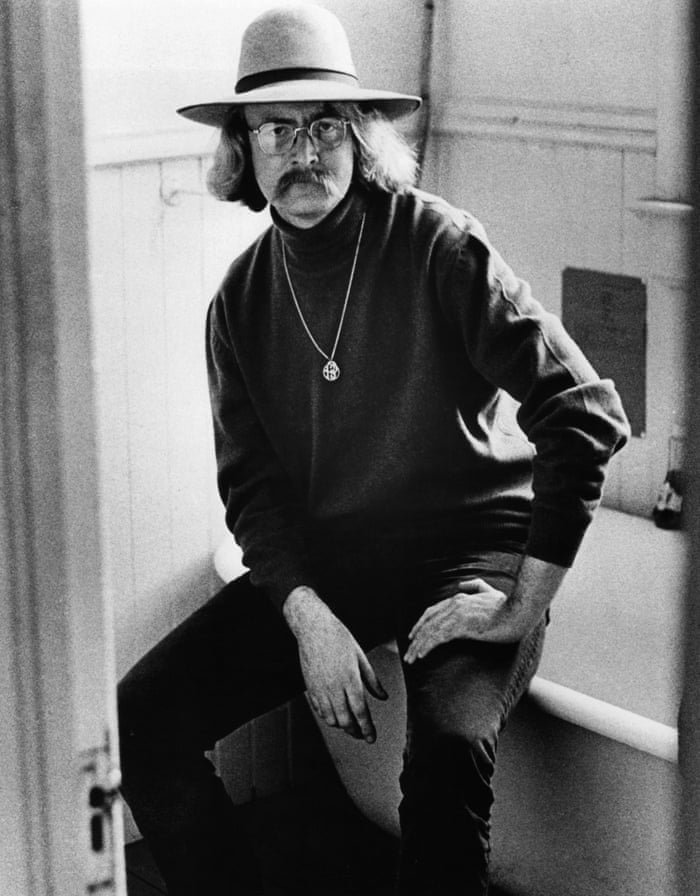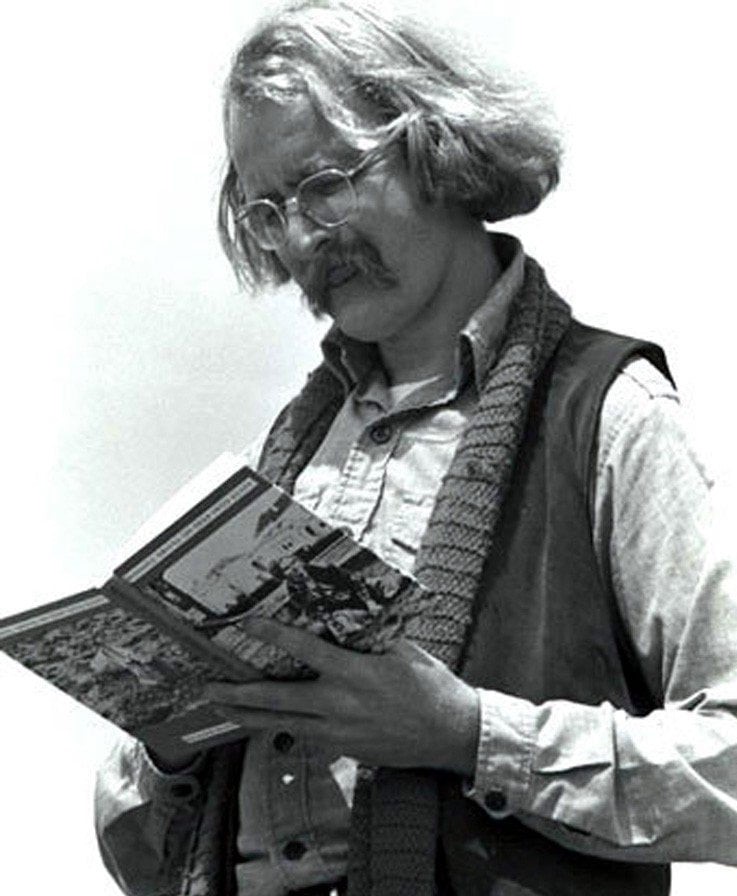Brautigan by Philippe Sarr
« No problem improvising something about Brautigan. Just give me time to get to the moon. The sea of tranquillity is still a long way off. But I have a good scooter ».
It was with these cryptic words, which you might think came out of my head after a night of drinking, that I replied to David Laurençon, the editor of amuse-bec.com, a classy, delicate magazine. I had written a strange text: Improvisation which was about smoke rings (do you see the connection?). His reply was quick and to the point, « No. I don’t want that text. Write me something about Brautigan instead. Okay? »
– I would like you to steal a body from the morgue.
A Private in Babylon
– No problem, I say. If you’ll pay the price, I’ll drop off Abraham Lincoln’s body on your doorstep tomorrow with the morning paper.

To tell the truth I would have quite(?) really(?) passionately(?) absolutely insanely liked to be the writer Brautigan. For a whole bunch of reasons, some of them trivial in themselves, a look, a face, among other such follies. For me, Brautigan was this « strange monster », a monster of gentleness and tenderness, a sort of immense beanpole with a horseshoe moustache, the sort you might bump into on the corner of the street while visiting his wine shop. Reading Brautigan was like stringing together epic poems and novels, he had a certain taste for spikes, for grand embraces of space and time, like doing shots of tequila. And the effect could be immediate, it didn’t take more than that for me to find myself walking in some remote place deep in the Larzac plateau, wearing a sombrero. Joking aside, with Brautigan, every word, every sentence is an event in itself. It lets us see, reveals to us, as one would say of a sacred text, what we have always sensed without having been able to make it audible, visible or present. All Brautigan’s art thus lies herein. In these flashes of brilliance, in this powerful capacity, by the sheer force of the writing to open « Babylonian » doors, to mark out new paths, to clear a passage into universes where grace vies with the baroque. Where it is no longer a question of oscillating between different levels of reality, but of entering fully into an absolutely unique (new?) world that integrates them all. Seen in this way, the author of « The Abortion » has therefore created a multiverse. A highly diversified body of work. Just as if he had been the inventor, perhaps in spite of himself, of a style, of a totally free and liberated writing style, disorienting his reader, shaking them with his beliefs and values, his habits, including editorial ones… (see this senseless bookshop, gathering in a perfect anonymity all the rejected manuscripts of the planet!). Therein lies the « Brautigan miracle ». Multiplying, in a flash, the craziest and most surprising images and situations. All this with a certain flippancy (« The Edna Webster Collection of Undiscovered Writings » – a collection of poetry) and via a well-controlled writing style, but far from being boring. Writing that is both literally and figuratively explosive, that tears, shakes and refreshes at the same time. Brautigan is from another era. Brautigan is the film Tenet well before its time. Of this gangly body, we only discover the shadow afterwards. That of a genuine « celestial tramp ». That of a literary mutant.
No heaviness of any kind about him. A laid-back approach, « without tension ». Despite the hindrances and obstacles of a life full of nuance, a hotbed of detachment and turbulence where the fire smoulders under the ice. Perhaps his name has something to do with it, a surname that is so pleasant to hear and pronounce. Brautigan, the name of a poet and a writer. One of those which is indispensable, which you enjoy reading, day and night. One of those whose musical sound, so special, like modern-day blues, accompanies you wherever you are… Spouting strange dreams whilst keeping you awake. Thus alive.
Brautigan probably did not have the life of a writer which he should have deserved. Brautigan occupies a very special place in the circle of the celestial tramps who have disappeared. A question of temperament perhaps, which led him to take his own life (an idea mooted by Jim Harrison) on a Montana ranch, precisely where a young woman had bowed out some time earlier… Or of profound boredom in a world far too restrictive for the poet he was…
Here is the link to the « Brautigan Library »: http://www.thebrautiganlibrary.org/index.html
The library of rejected manuscripts. It is found in « The Abortion ». The « books » are classified there according to the « Mayonnaise System », all the works being perfectly mixed, poetry, fiction, essays. No authors’ names or book titles. Just the text. The text alone…
PHILIPPE SARR
Translation: Hilary Burgess


Philippe Sarr is a novelist.
In 2021 he became co-director of the independent publishing house éditions sans crispation